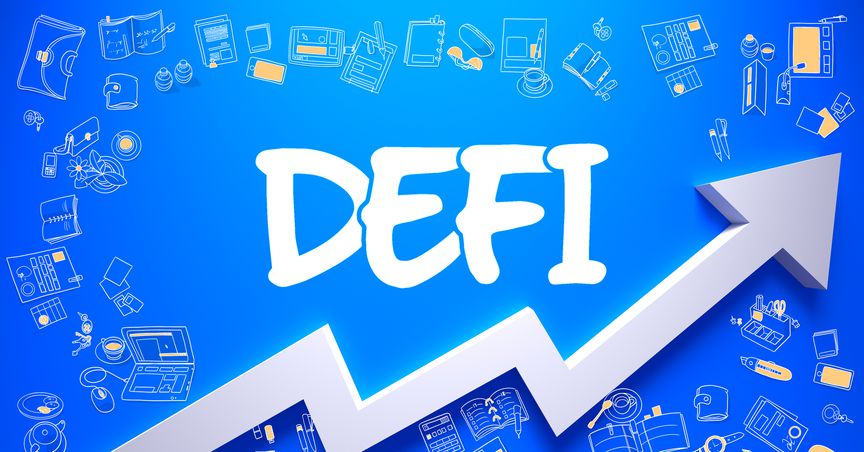Highlights
- DeFi enables distributed access to financial services without any central intermediaries.
- One of the core premises of DeFi is that unlike CeFi or centralized finance, there is no centralized authority to dictate or control operations.
When decentralized finance (DeFi) exploded onto the scene in 2020, an array of opportunities came for various crypto users. DeFi enables distributed access to financial services without any central intermediaries. One of the core premises of DeFi is that, unlike CeFi or centralized finance, there is no centralized authority to dictate or control operations.
The DeFi brought forth various opportunities, such as peer-to-peer transaction systems, transparency, Interoperability, decentralization, global access etc. At the same time, it brought along profound risks, such as complexity, liquidity risks, lack of accountability etc.
Having said that, with DeFi still in its infancy, many believe it has enough potential and offers convenient and high-performing revenue-creation tools. DeFi protocols offer investors an opportunity to earn passive income through staking, liquidity mining, and yield farming. But the flip side is the risks associated with DeFi can bring huge losses. Investors can lose massive amounts of money through various scams and rug pulls if one is not careful.
Amidst this, let’s explore some of the other opportunities and challenges that decentralized finance brings:
Transparency: One of DeFi’s advantages is the transparency factor that it brings along. The users can seamlessly keep a tab on how and where their money is spent and its result. The blockchain’s cryptographic ensures not only ensures proper verification of documents but it also shows how the customers can get the best from transparency.
Immutability: For an effective function having an immutable resource is critical. Therefore, having an effective utilization of consensus algorithms such as proof-of-work helps in achieving immutability.
Immutability makes it impossible to manipulate any record on the blockchain network. It is this feature of immutability that ensures that DeFi solutions can carry out financial transactions.
Lower Fees: As it is decentralised, the DeFi protocol doesn’t involve middlemen. Hence, it comes with lower fees than CeFi services, which need third-party intervention. This helps customers to save up on money. Additionally, DeFi transactions are quicker than conventional banking transactions, allowing users to access their money more immediately.
Lending and Borrowing features: DeFi is a significant player in fostering peer-to-peer lending and borrowing solutions. Additionally, it makes the verification system faster and easier and safeguards counterparties in a transaction. The lending pools allow users to borrow, and lenders would receive a share of the interest paid back by borrowers to the pool.
While not everything is rosy with DeFi either, it does come across with certain challenges, which makes it challenging. Some of the challenges associated with DeFi are:
Lack of accountability: DeFi is decentralised, so no single entity can be held accountable. Besides, in the case of an unstable blockchain hosting a DeFi project, the project may become unstable.
Scalability issues: Even though DeFi are often considered suitable for enabling financial inclusion, various DeFi projects face scalability issues. Even though the verification is one of the USPs of DeFi protocol, at times during congestion, it may take extensive time for confirmation. Also, the DeFi protocols could become highly expensive during the same period.
Concerns of Liquidity: Market volatility and sudden price movement affect DeFi protocols. This often leads to liquidity problems, which may result in volatility and price changes. According to DefiLama, the total locked value in DeFi protocol as of 6 Match 2023 stands at US $48.3 billion, with total Liquidation levels in DeFi at just US$ 1.7 billion.
While every protocol has pros and cons, it’s very important to do proper market research and understand the market before making any investment decisions. While DeFi has become a promising platform which is transforming conventional benchmarks of financial services, it is still, at best, in its infancy.
Risk Disclosure: Trading in cryptocurrencies involves high risks including the risk of losing some, or all, of your investment amount, and may not be suitable for all investors. Prices of cryptocurrencies are extremely volatile and may be affected by external factors such as financial, regulatory, or political events. The laws that apply to crypto products (and how a particular crypto product is regulated) may change. Before deciding to trade in financial instruments or cryptocurrencies you should be fully informed of the risks and costs associated with trading in the financial markets, carefully consider your investment objectives, level of experience, and risk appetite, and seek professional advice where needed. Kalkine Media cannot and does not represent or guarantee that any of the information/data available here is accurate, reliable, current, complete, or appropriate for your needs. Kalkine Media will not accept liability for any loss or damage as a result of your trading or your reliance on the information shared on this website.



